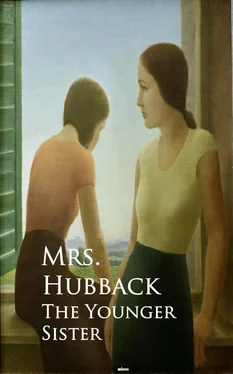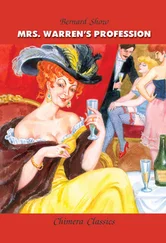"Well, Emma," said Margaret directly, "I will drive you over to-morrow if you like—you don't drive, I dare say!"
"I think," said Emma, "that Elizabeth ought to go, because as it is a first visit, and she is the eldest—it will seem more complimentary."
"Certainly," cried Elizabeth, who was quite as anxious as Margaret to pay the visit, "you and I, Emma, must go at all events."
"But then
I
can't," exclaimed Margaret, "and why am
I
to be left out? if Elizabeth goes, because
she
is eldest, I have the best right to go too, when Pen is away, for I am older than Emma, at all events."
"But as the visit was paid especially to Emma," rejoined Elizabeth, "it is quite impossible that she should give up to you. She
must
go."
"Oh, yes, every body must go but me, that is always the way, it's very hard."
"Would not the chaise hold three?" suggested Emma, anxious for a compromise, "Margaret is so slight, and I am not large, I am sure we could sit so."
"I dare say you could," replied her father, "but I can tell you, you would have to sit in the stable-yard if you did, for the old horse could not draw you, and should not make the attempt—no, no, if Margaret wants to go she may wait till next time—if you pay visits at all, you shall pay them properly."
The consequence of this decision on the part of their father, was such an increase of fretfulness in Margaret for the rest of the day, as to make Emma inclined to think the society of her new acquaintance would be dearly bought at such a penalty. Elizabeth bore it with the indifference produced by long habit.
"It is no use minding her," said she to Emma, as they were undressing, that night; "she is always the same; if you give up one thing, she will quarrel about another; you can do no good to her by sacrificing every thing to her wishes, and you had much better take your own way when you can, and mind her crossness as little as possible."
Emma sighed at this assertion, but she sighed in vain; Margaret's ill-humour was as apparent next morning, and rather increased as the hour of setting off drew near. It was some consolation to her, however, to discover that the day was exceedingly cold, with a heavy canopy of clouds over head, and occasionally, slight sprinklings of snow, which promised any thing but a pleasant drive to her sisters. Wrapping themselves up as well as they could, they set off; but the ominous appearance of the sky rather increased than diminished; and before they came in sight of Osborne Castle, for the parsonage was within the park, a very heavy fall of snow overtook them. As their humble vehicle slowly progressed along, Elizabeth was earnestly hoping that none of the Osborne family would see them; she had never before reflected much on the difference in their rank and circumstances; but now, whilst driving along the road where
their
coach and four had so often passed, she was mentally comparing her lot with Miss Osborne's, and it seemed almost presumption in her to come, as it were, in contact with such superior elegance and grandeur.
Emma's sensations were different; she felt that their equipage was suitable to their station, and need therefore cost her no blushes, as it gave her no concern. The wish to find the inhabitants of the parsonage at home, was uppermost in her thoughts—and the hope that they should ultimately return, without being buried in the snow, her principal object of anxiety.
In the former of these she was perfectly gratified; the neat and pretty looking maid, who opened the door, announcing that both the master and mistress were within. Emma was struck with the air of comfort and tidiness in all she saw, possibly because it contrasted strongly with her father's house. It was owing to Mr. Watson's frequent illness perhaps, but at home she had observed so many things which appeared to require a master's eye. The gate swinging on one hinge, the trees straggling over the paths, the wall round the stable-yard broken down, and a hundred other examples of neglect and disorder had met her eyes at home. How different it all was at Mr. Howard's! Even with the disadvantage of winter, and the consequent dreariness of aspect which a lawn and shrubbery at such a season must present—the neatness of the place conveyed an idea of comfort and taste.
The porch and steps were clean and white; and the little vestibule, through which they passed to the parlour, was ornamented by some fine myrtles and geraniums in pots, which combined with the well-arranged guns, fishing-rods, and similar objects to give an air at once elegant and pleasing to the eye, but not too studied for the daily habits of domestic life. The useful and the ornamental were happily blended, and Emma looked with great pleasure round her.
They found Mrs. Willis sitting alone, and were received by her with warmth and ease.
"It is very good, indeed, of you to come through such weather to see us," said she, "I am sure you must be half frozen—what can I give you to make you comfortable."
Her visitors assured her they needed nothing; which, however, was not strictly true, as Emma certainly required the presence of the brother to make her quite contented. This assurance did not satisfy the hospitality of their hostess, who persisted in ordering hot wine and water, and would not be satisfied without their eating something to keep prevent any ill effects from the cold, as she said.
They had not sat there many minutes, when Mr. Howard entered from his little study which faced the entrance. He had seen their arrival, but would not gratify his wishes of immediately presenting himself till he had ascertained that their horse was properly attended to, and the carriage placed under cover, to shelter it from the now thickly descending snow.
Elizabeth looked round the room with surprise and admiration. It was not larger or better than their own—and the furniture was, apparently, neither more expensive, nor more plentiful—but there was an air which their sitting-room never had. Instead of the old discoloured engravings of bishops with wonderful wigs, or gentlemen in broad-tailed coats, and flapped waistcoats, with their black frames, and dull, dusty glasses, which adorned the walls of their usual sitting-room at home, there hung here a few beautiful copies from the well-known and most admired works of the Italian masters, which Mr. Howard had brought as the fruits of his tour with Lord Osborne. These appeared to Elizabeth far more cheerful than the dingy prints before mentioned, although the idea of objecting to the latter, had never before entered her head. There was a flower-stand with some pretty plants; an embroidery frame; a bird cage with Charles's pet canary; a set of bookshelves well-filled, and a comfortable fire. But she could not make out why the appearance of the room was so different from things at home. Perhaps one reason was, that the whole of the furniture, having been bought and arranged at the same time, harmonised together; unlike the articles in her father's house, which having been picked up at different auctions in the neighbourhood, or purchased second-hand from the broker, appeared, when put together, ill-matched and out of place, however good in themselves the individual articles were. She wished she could learn the art of giving such an air to a room, but she feared she never should. These thoughts wandered through her mind during the intervals of her conversation with their hostess, mixed with occasional wonder that Emma should find so much to say, and say it all with so much ease to Mr. Howard; for though Elizabeth could get on pretty well with Mrs. Willis, she still felt some degree of awe towards Mr. Howard himself; a man who taught young Lord Osborne, and played at cards with his mother. Emma, evidently undeterred by such considerations, or rather not considering the subject at all, kept up a very pleasant chat with him, though nothing was said by either particularly deserving to be recorded. Half an hour passed rapidly, but when the sisters, after glancing at each other as a signal for departure, began to look rather anxiously at the weather, they found that it had changed decidedly for the worse since their entrance, although their attentions had been too much engrossed to perceive it before. The heavy sky was discharging itself on the earth in a thick veil of snow, which entirely concealed the distance, and rapidly whitened all surrounding objects. So dense was the atmosphere, that it rather seemed as if the clouds had themselves suddenly descended and settled upon the earth, than as if they were merely dispensing their superfluous contents. The wind too, which had before blown only in occasional gusts, was now almost incessant, and greatly increased in violence, and as their road lay eastward, they were certain of encountering it in full force. The whirlwinds of snow which it raised, threatened almost to smother unhappy travellers, and would have made it madness to attempt to face it.
Читать дальше












